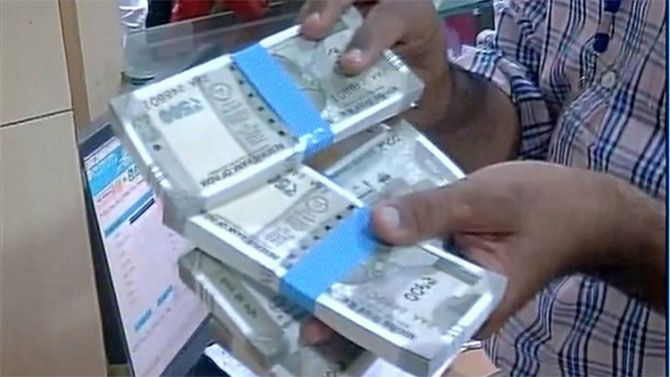PMO asked income-tax department to submit report on action taken against identified benami owners

The income tax department has started a multi-city crackdown against owners of “benami” assets, who parked their ill-gotten wealth in the name of others.
According to sources, the department has identified 300 cases that could face action under the Benami Transactions (Prohibition) Act. The Act empowers taxman to confiscate and prosecute the depositor and the person whose illegal money was accommodated in bank accounts.
Benami assets include property, bank accounts, cash deposits, jewellery
CBDT has constituted 30 special unit in 16 jurisdiction to deal with benami cases
Of the 1,300 high-risk cases identified by I-T, 40% are benami transaction cases
PMO keeping close watch, seeks report on action taken
The move came after Prime Minister Narendra Modi in a recent meeting directed the tax department to take stringent action against benami owners identified during Operation Clean Money - an ongoing exercise to detect undisclosed money generation in the system, after demonetisation.
Acting on the directive, the Central Board of Direct Taxes (CBDT) has constituted 30 special units in 16 jurisdictions. Each unit will have four income-tax officials, headed by the additional commissioner of the zone.
The teams will only deal with benami cases under the given provision of the Act. An internal notification in this regard has been circulated to the officials concerned.
The second phase of Operation Clean Money identified 1,300 “high-risk” cases, mainly because their real estate deals and land purchases were found to be excessive when compared with their tax profiles and earnings. According to the estimation, the total value of their property deal was more than Rs 6,000 crore (Rs 60 billion).
A senior CBDT official said 35-40 per cent of these high-risk persons are into benami transactions.
“We have observed hundreds of cases where persons have opened multiple accounts of an employee trust, booked land/flats in the names of their personal staff, including peons and drivers,” he added.
There have been a significant number of instances where benami owners have also done multi-layered transactions to evade taxes on unaccounted wealth, he explained.
The CBDT has been asked to submit a report of action taken to the Prime Minister’s Office (PMO) and the Department of Revenue. Sources said the PMO was closely watching the development and was keen on bringing benami owners to book.
Tax officials said these benami owners were mostly government employees, shopkeepers, medical officers, independent lawyers and businessmen.
The identification was based on integration of data sources, which the department received from third parties. These include statements of financial transactions submitted by banks, property dealers and registration authorities in the past three years.
The Benami Act is one of the most stringent law framed to clamp down on benami properties. It attracts a heavy fine that could be as much as 25 per cent of the fair market value of the asset concerned and include a rigorous jail term of up to seven years.








